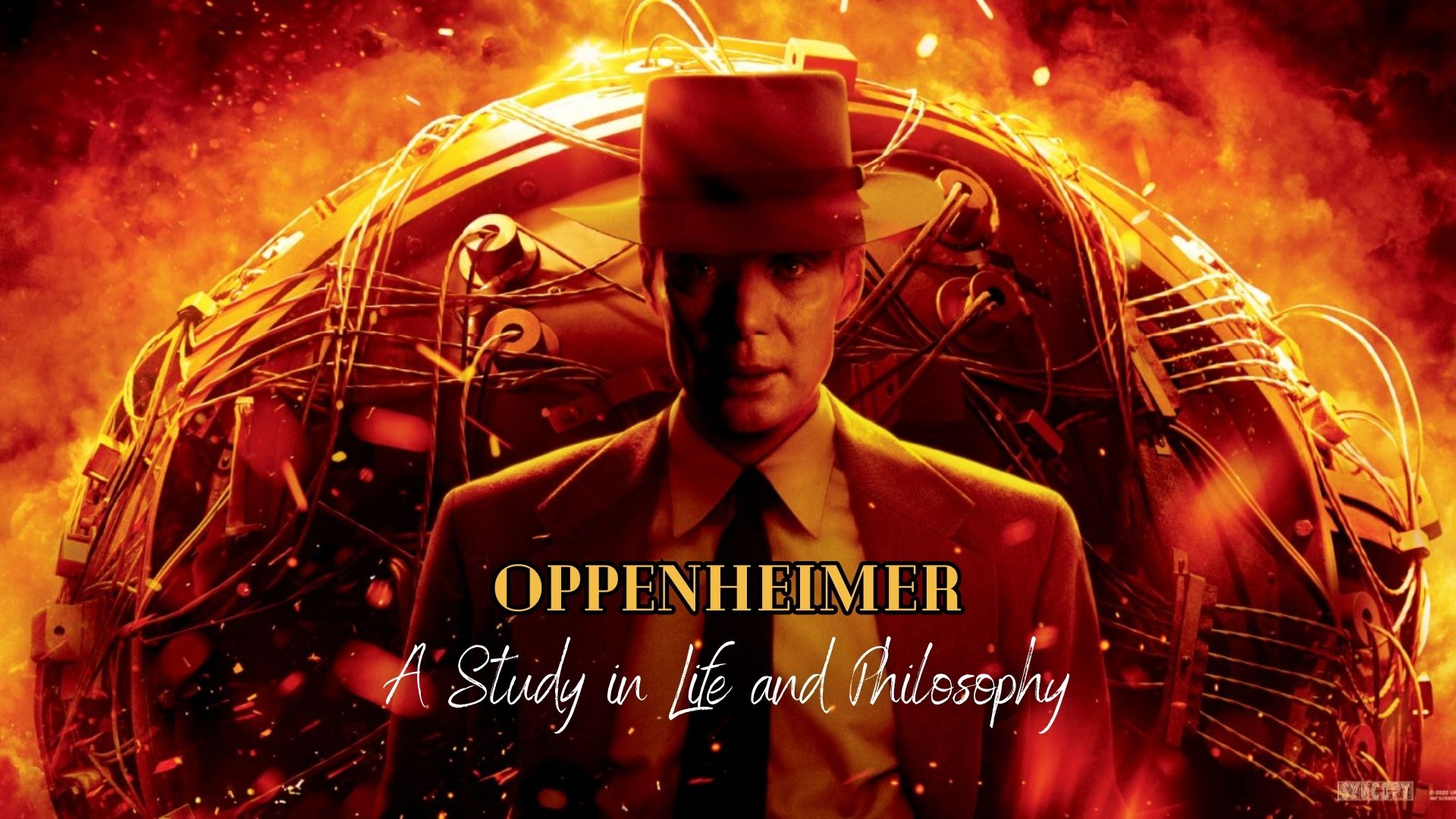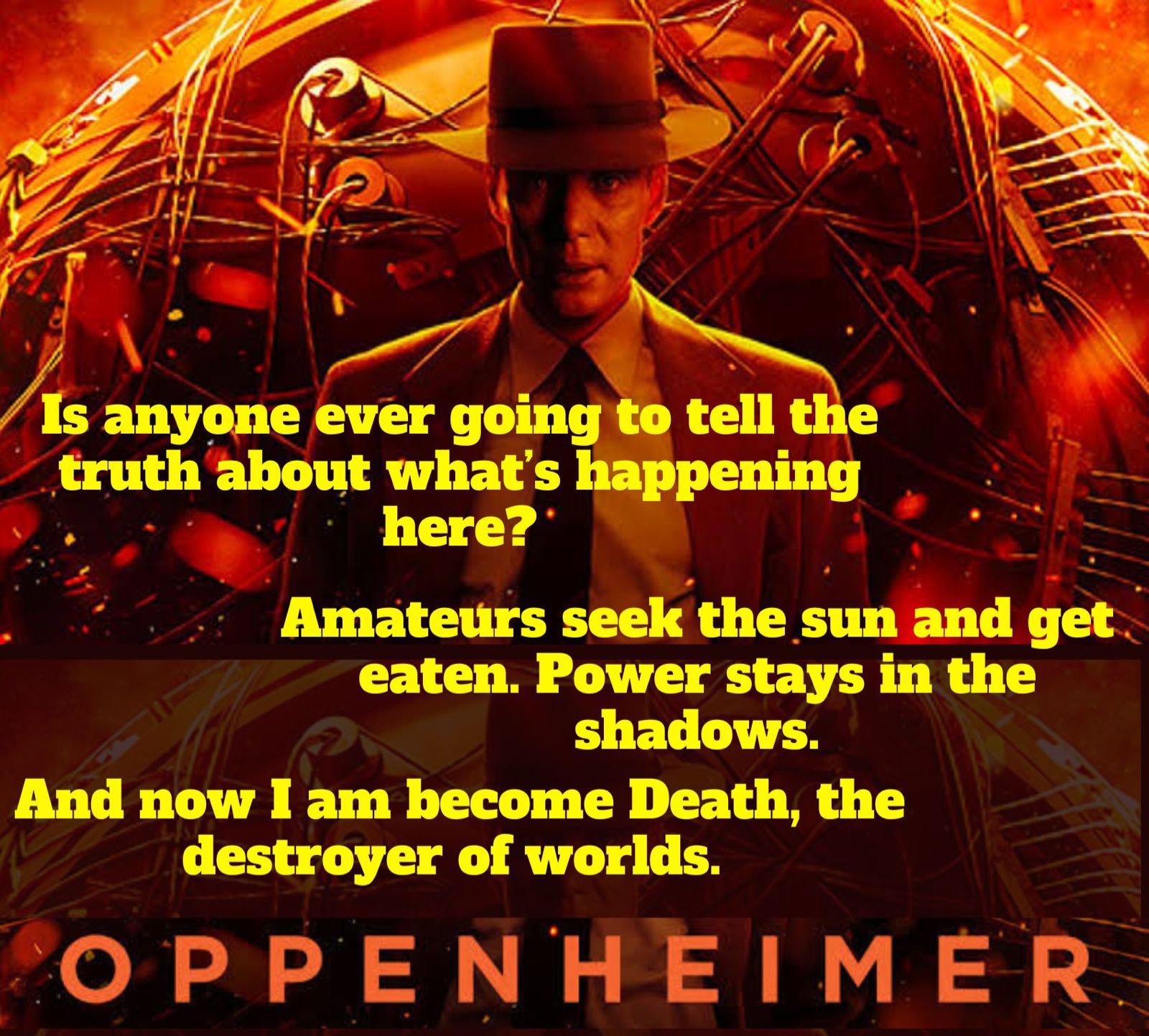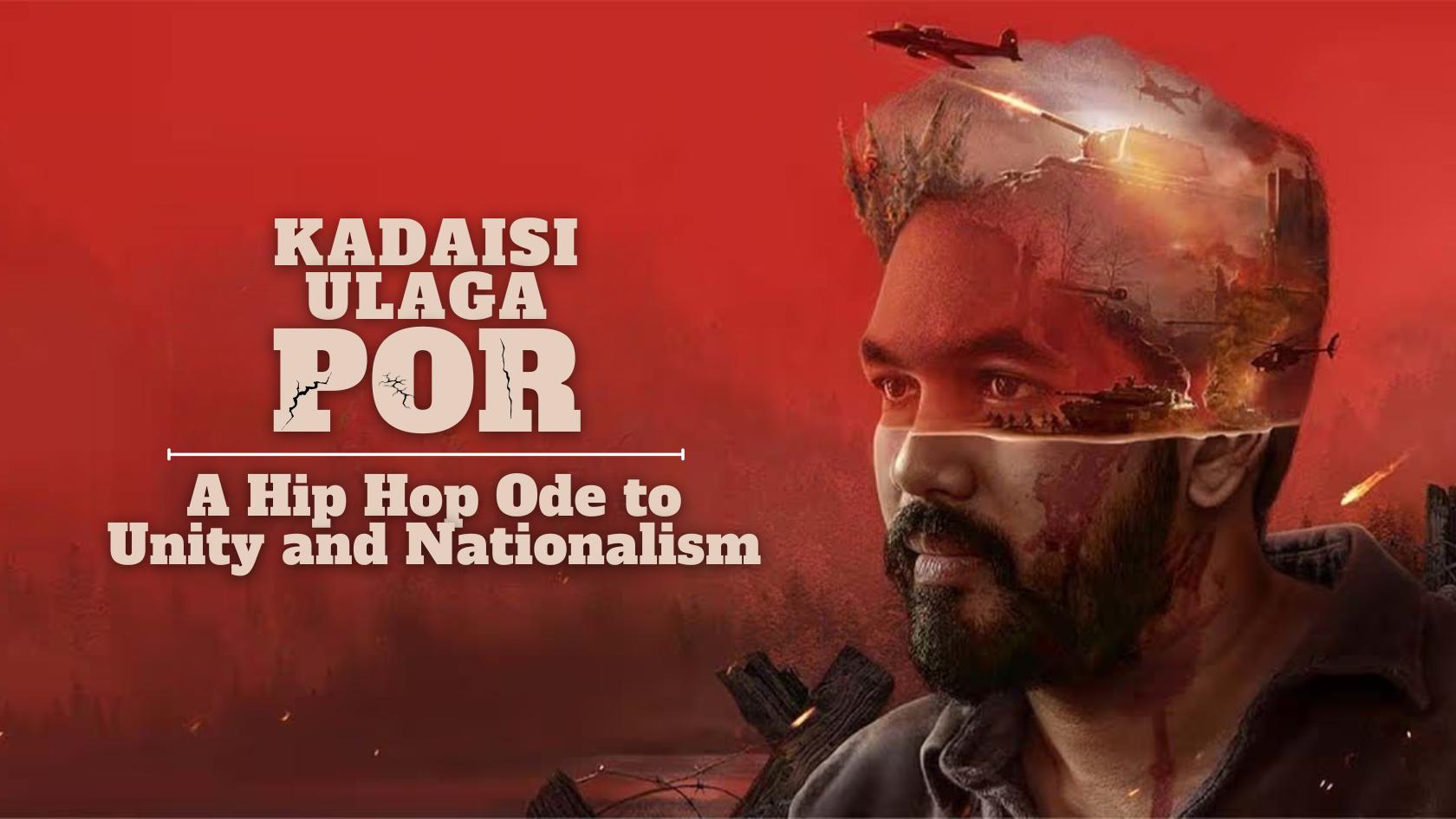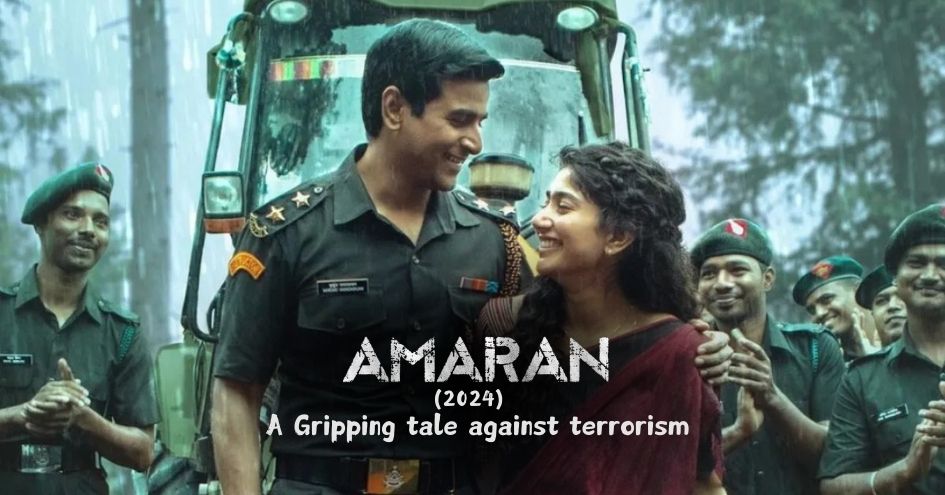
‘Now I Am Become Death, the Destroyer of Worlds’ ~ J. Robert Oppenheimer
As a movie watcher, I have always been intrigued by Christopher Nolan, the man. I have really liked some of his movies, some not so much. But what has always grabbed my attention is Nolan’s perspective of things – very unique and unlike anyone else. Hence, when I first heard Chris Nolan was going to make a biopic of J. Robert Oppenheimer, my interest was piqued. Here was one of the most important and fascinatingly complex characters in entire human history and the most imaginative filmmaker of our times was going to bring his life to the screen.
Before we go any further, a disclaimer: this piece will not try to measure the cinematic brilliance or otherwise of Nolan’s magnum opus – enough has already been said and written on the topic. Instead, it will try and focus on the philosophical debates centered around Oppenheimer’s life and times that this movie has triggered.
There is an iconic line uttered by Jeff Goldblum’s character Dr. Ian Malcolm in Steven Spielberg’s 1993 landmark movie Jurassic Park. Talking about the destructive potential of DNA research, Malcolm says “Your scientists were so focused on what they could, they never bothered to stop and ask, if they should.” It perfectly captures the moral debate that has dominated scientific research for most of 20th century and onwards – does the potential misuse and devastation caused by technology make the inventors responsible? There has never been a clear answer to this and unlikely to be.
The same things that make our lives safer and easier can as easily turn into agents of death and destruction. Cutting edge biological research made possible for humankind to come up with a vaccine for the Covid-19 virus in record breaking times that rescued the world from the pandemic and restored normalcy. Yet, the same research is also being used to create deadly biological weapons. Will you hold the microbiologists as miracle performers or agent of death?
This is the debate that has swirled around J. Robert Oppenheimer and has been re-ignited with Nolan’s film. When witnessing the first detonation of a nuclear weapon on July 16, 1945, the lines from Bhagavad Gita run through Oppenheimer’s mind, “Now I am become Death, the destroyer of worlds.” Unfortunately, both from perspective of the Bhagavad Gita and Oppenheimer, this line has been very misunderstood. Many have used this to interpret that Oppenheimer was almost in an exultant mode over his invention and its power. The reality is though far more nuanced and layered.
For good or bad, J. Robert Oppenheimer was put in an unenviable position – it was a more difficult choice than anyone before or after him has been subjected to. He was to lead the effort to create a weapon more destructive than any seen before by humanity. It was a race against time, Hitler’s Germany was working on the same and they had a head-start. As a Jew, events unfolding in Europe must have affected Oppenheimer deeply. Failure would mean America and the Allies getting bombed back to Stone Age by Germany. Yet, he also had to deal with unimaginable power – whose scope not just boggles but numbs the mind.

In this deep position of conflict, Oppenheimer turned to the Bhagavad Gita, trying to make sense of his positional predicament from the wisdom discussed in the pages of Hinduism’s most Holy Scripture. The core theme of the Bhagavad Gita – of Lord Krishna urging Arjuna to make war – not for the sake of it but for the cause of righteousness is what must have appealed to Oppenheimer. For wasn’t he in the same position as the legendary warrior – where his success or failure would determine the course of justice and righteousness. Oppenheimer’s uttering of Bhagavad Gita’s iconic lines was not exultation or self-pride: it was a man making peace with the intense choice he was subjected to.
Attacking Oppenheimer for invention of the atomic bomb is unfortunately a simplification of things and ignores the complexities of reality. Do we hold biologists responsible for biological weapons? Do we hold chemists responsible for use of chemicals in war? If no, then why the exception for J. Robert Oppenheimer is a question that begs pondering.
It is not that Oppenheimer was unaware of the damaging capabilities of the power they were harnessing. But like Arjuna in the Mahabharata, Oppenheimer followed what seemed the right course of dharma to him. Even after Germany and Italy’s fall, war had raged on in the Pacific theater, leading to piling up of casualties every day. Arrival of thousands of body bags every day – mostly containing young lives extinguished too soon – would move anyone deeply. Oppenheimer believed that use of the weapon would hasten the end of the war in the Pacific and a return to peace, saving many lives.
Post the bombing of Nagasaki, Oppenheimer was left deeply conflicted and haunted by the devastation caused. His recommendation to President Truman to restrict further nuclear research – something that immediately turns him into a figure now despised by the establishment. Therefore, to paint this man as a willing agent of death is both insensitive and ill informed.
Should nuclear research have been stopped as Oppenheimer desired? It is a question that probably will always be the most debated ever. Immediately after WW2, a new war of a very different nature started between USA and the USSR that continued for the next nearly five decades. During the years of the Cold War, the two sides came to close to war several times – most dangerously during the Cuban Missile Crisis in 1962. Yet, despite such prolonged state of hostilities, open war never happened between the NATO allies and the Soviet Bloc. Did presence of nuclear capabilities on both sides work as a deterrent? In absence of nuclear capability on both or at least one side, could the Cold War actually have turned into WW3? I will let you, dear readers to form your own opinion.
Coming back to Nolan’s movie, the film is technically a fantastic piece of execution – as are all films by this master filmmaker. It does really well in delving into the tortured mind of this brilliant man although personally, I would have loved if it formed more of the movie’s plot. Nolan also wisely chooses not to pass a judgment on his protagonist – instead leaving it to his audiences.
For daring to take on such a tricky, complex and sensitive topic, I doff my hat to Mr. Nolan. For me, Oppenheimer will always remain Chris Nolan’s most important film.
 Based out of Kolkata, Trinanjan is a market researcher by profession with a keen interest in Indian history. Of particular interest to him is the history of Kolkata and the Bengal region. He loves to write about his passion on his blog and also on social media handles.
Based out of Kolkata, Trinanjan is a market researcher by profession with a keen interest in Indian history. Of particular interest to him is the history of Kolkata and the Bengal region. He loves to write about his passion on his blog and also on social media handles.
NEXT ARTICLE

Hiphop Tamizha's "Kadaisi Ulaga Por" (The Last World War), released in 2024, transcends the typical action-packed sci-fi war movie genre. It embeds a...

Creating war films is a challenging endeavor, and capturing the emotional struggles of soldiers and their families adds an even greater layer of com...

Emergency, directed by Kangana Ranaut, is a bold and gripping political drama that delves into one of Independent India’s darkest periods: the Emergen...